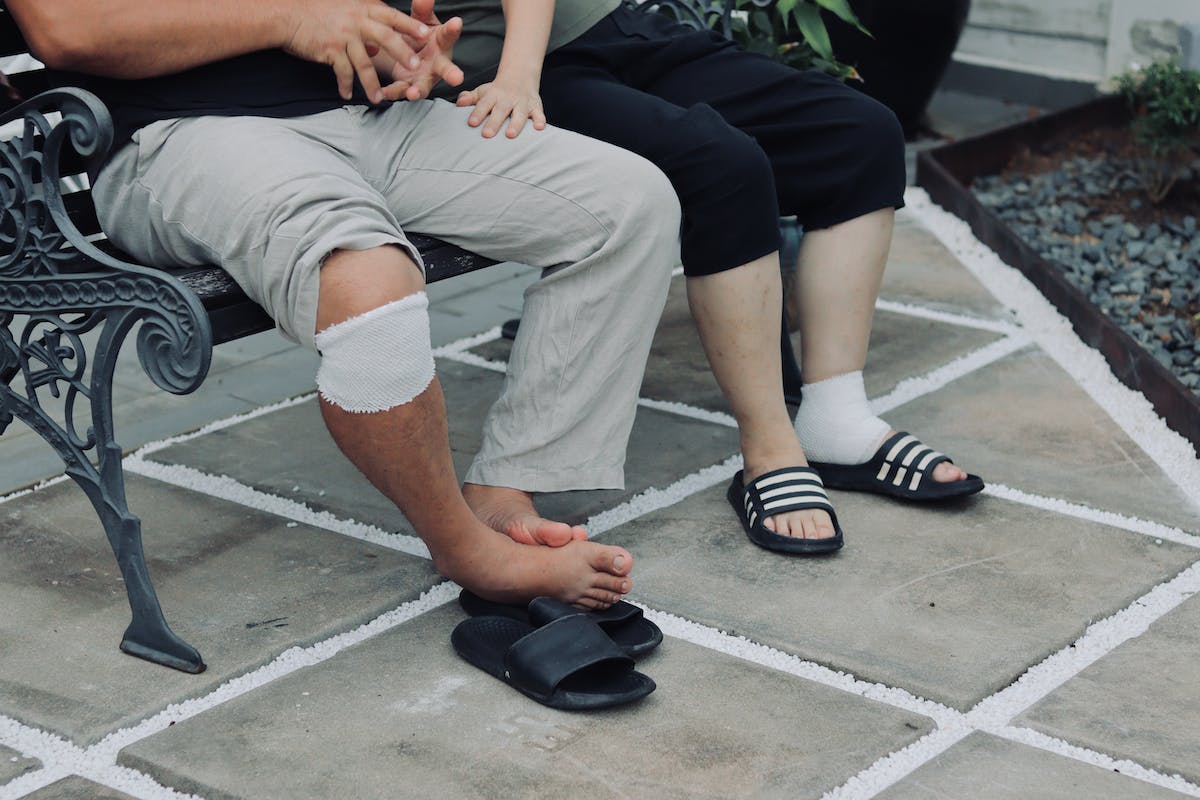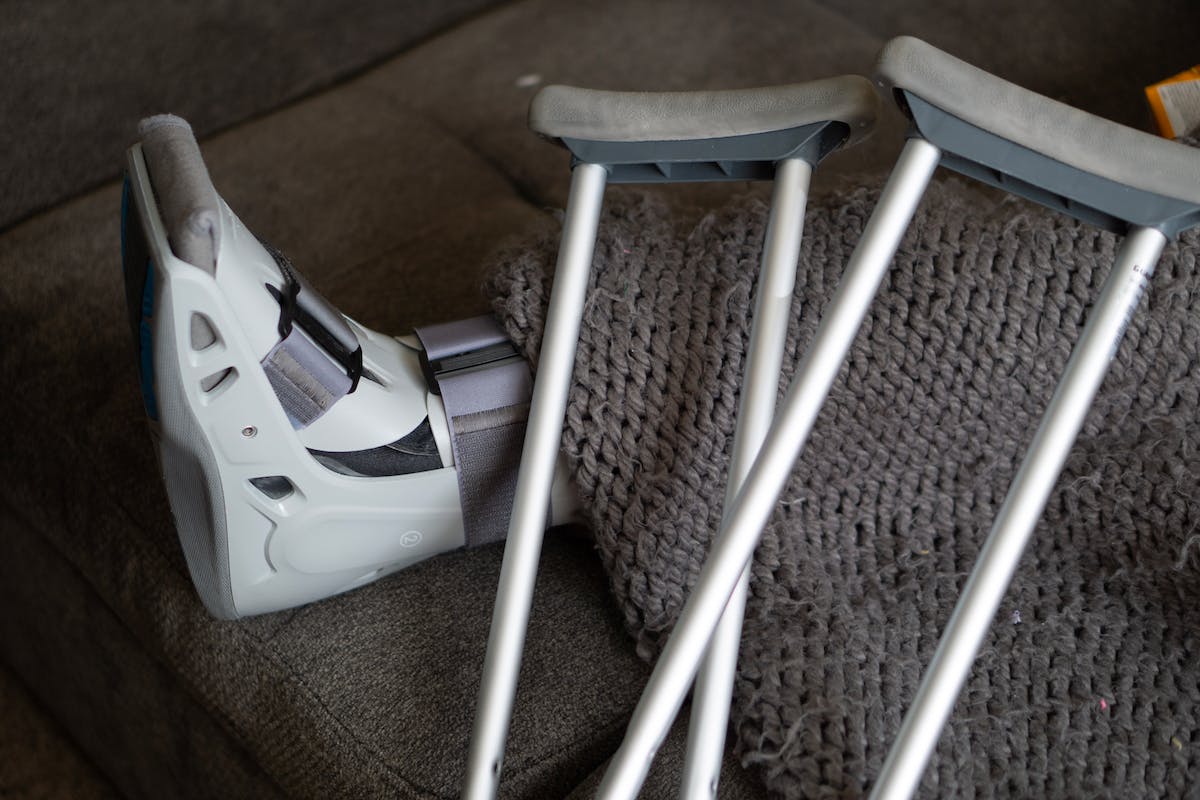Orthopedic health, crucial for daily activities and mobility, impacts various aspects of life and healthcare. This field encompasses bones, muscles, joints, and their role in actions ranging from simple tasks to complex physical activities. It also includes preventative measures for athletes and therapeutic interventions for conditions like arthritis and osteoporosis. Both healthcare professionals and individuals share responsibility for understanding and maintaining orthopedic health. Good orthopedic health, essential for an active lifestyle, involves staying informed about its importance and adopting appropriate preventative and management strategies.
Understanding Orthopedic Health
Orthopedic health, a key element of overall wellness, involves non-invasive treatments addressing musculoskeletal issues. By understanding orthopedic health, we acknowledge the close link between the musculoskeletal system and general health. Conditions in this field range from joint pains to traumatic injuries like muscle pulls, spinal cord trauma, and whiplash neck injuries. If not treated, these conditions can impact general wellness. Timely orthopedic care facilitates healing, normal functionality restoration, and performance enhancement in sports and exercise.
Orthopedic doctors diagnose conditions accurately using the latest treatments, educate patients on orthopedic health importance, and provide wellness advice. This empowers patients to make informed health decisions, improving life quality. Therefore, understanding orthopedic health is vital for a healthy, active lifestyle, making it an essential aspect of overall health.
Role of Orthopedics in Medicine
Orthopedics, a key medical specialty, focuses on diagnosing, treating, and preventing musculoskeletal disorders. It enhances overall health, mobility, and life quality. Orthopedic health significantly impacts daily living.
Key benefits of orthopedic care include:
- Accident Recovery: Orthopedic specialists aid in trauma recovery from sports, accidents, or exercise.
- Chronic Pain Alleviation: Non-invasive orthopedic procedures help reduce chronic joint pain and arthritis.
- Improved Mobility: Orthopedics boosts patient mobility by treating musculoskeletal system conditions.
- Preventive Care: Regular orthopedic check-ups facilitate early diagnosis and prevention of musculoskeletal disorders.
Benefits of Orthopedic Consultation
Orthopedic consultations offer notable advantages. They prevent orthopedic conditions, boost mobility and flexibility, detect and treat issues promptly. A proactive strategy can curb the advancement of musculoskeletal diseases, conserving ideal physical function. Early problem identification allows quick, specific treatment, elevating patient life quality and reducing disability risk.
Preventing Orthopedic Conditions
Orthopedic conditions prevention hinges on regular consultations with an orthopedic specialist. This proactive approach aids in early disease detection, allowing for immediate, effective treatment and averting complications. Personalized treatment plans reduce inflammation, relieve pain, and enhance joint function. The healing and recovery process benefits from consistent orthopedic care, ensuring functionality restoration. Patient education by orthopedic specialists fosters wellness and encourages active treatment participation. Thus, orthopedic health, a vital component of overall well-being, is maintained.
Enhancing Mobility and Flexibility
Orthopedic consultations enhance mobility and flexibility, crucial for health and wellness. These consultations provide treatment plans for individuals with limited motion due to chronic joint conditions. Treatments include braces, corticosteroid injections, and physical therapy. These aim to restore functionality, improve joint motion, and reduce stiffness. Additionally, orthopedic consultations aid physically active people, enhancing exercise and sports performance. Offering rapid diagnosis and personalized treatment, these consultations promote joint function recovery, contributing to overall health and wellness.
Early Detection and Treatment
Early orthopedic consultation enables efficient diagnosis and treatment of joint and muscle pain, improving musculoskeletal health.
- Prompt Attention: Orthopedic Surgeons diagnose and treat injuries swiftly, increasing full recovery chances.
- Understanding Condition: Early detection aids patient comprehension of their ailment, enhancing treatment adherence.
- Preventive Measures: Early consultation facilitates implementation of preventive measures, reducing further complications.
- Quality of Life: Orthopedic care improves patients’ life quality, restoring functionality and alleviating pain.
Reasons to Visit an Orthopedic Doctor
Persistent pain or limited mobility in your musculoskeletal system necessitates a visit to an orthopedic doctor. They specialize in diagnosing and treating conditions affecting the knee, hip, shoulder, ankle, foot, back, and neck. Orthopedic doctors offer treatments like physical therapy, non-surgical methods, and surgical interventions when required. These treatments aim to alleviate pain, swelling, injuries, and stiffness, thus improving range of motion and mobility.
Orthopedic doctors also play a key role in preventive care. Regular check-ups lead to early detection and timely intervention of potential issues, stalling further deterioration. Even without symptoms, regular screenings are recommended, particularly for active individuals or those with a family history of orthopedic conditions.
Managing Pain With Orthopedics
Orthopedic treatments are critical for pain management, using muscle manipulations and advanced methods to reduce discomfort and promote bodily healing. Orthopedic health is vital for overall well-being.
Orthopedic pain management involves four steps:
- Diagnosis: Pinpointing the pain’s source through physical examinations and diagnostic tests is essential for creating an effective treatment strategy.
- Non-surgical treatment: Techniques such as physical therapy or medication are used to control chronic joint pain and other musculoskeletal conditions.
- Surgical treatment: For severe cases, orthopedic surgery corrects the issue and relieves pain.
- Rehabilitation: Post-surgery rehabilitation helps patients regain strength and mobility, ensuring a full recovery.
Orthopedic specialists, with their extensive training and experience, treat a wide range of conditions from traumatic injuries to chronic diseases. By offering personalized care for each patient’s unique needs, they significantly enhance life quality. Therefore, orthopedic health is key to a pain-free, active lifestyle.
Orthopedics and Injury Prevention
Orthopedics contributes significantly to injury prevention. Understanding orthopedic injuries enables efficient prevention strategy implementation to reduce risks. Regular exercise enhances orthopedic health and minimizes injury probability.
Understanding Orthopedic Injuries
Orthopedic injuries encompass traumatic injuries, chronic joint pains, arthritis, and infections. They are addressed through non-invasive procedures and treatments, demonstrating the critical role of orthopedics in patient recovery and injury prevention.
- Orthopedic care provides a comprehensive approach to joint health, employing non-invasive treatments for discomfort relief and healing enhancement.
- Orthopedic surgeons diagnose and treat traumatic injuries, ensuring meticulous care for patient recovery.
- These specialists perform joint replacements and nerve treatments, providing a wide range of treatment options.
- Orthopedic specialists advise on safe practices to prevent injuries, emphasizing the importance of injury prevention in orthopedic health.
Efficient Injury Prevention Strategies
Orthopedic health significantly benefits from efficient injury prevention strategies, reducing the risk of musculoskeletal injuries and promoting joint wellness. Exercise strengthens muscles and increases flexibility, diminishing musculoskeletal problems. Utilizing correct warm-up, cool-down methods, and protective gear prevents traumatic injuries. Consulting an orthopedic specialist aids in creating personalized treatment and prevention plans. Orthopedic health is crucial for an active lifestyle. Accurate diagnosis and treatment of orthopedic conditions, along with injury prevention, greatly improves life quality.
Role of Regular Exercise
Regular exercise significantly contributes to orthopedic health and injury prevention by strengthening muscles, bones, and connective tissues. Key points include:
1) Exercise enhances muscle strength and fortifies the tissues connecting joints, thereby improving stability and lowering injury risks.
2) Regular physical activities boost flexibility, balance, and coordination, effectively preventing falls and fractures.
3) Weight-bearing exercises preserve bone density, reducing osteoporosis risk.
4) Frequent exercise promotes joint health, improves lubrication, decreases stiffness, and assists in managing chronic conditions like arthritis.
Orthopedic Treatments: Surgical and Non-Surgical
Orthopedic treatments, crucial in healthcare, encompass surgical and non-surgical methods to manage musculoskeletal conditions. Their goal: restore functionality, enhance mobility, and abolish pain.
Non-surgical treatments like physical therapy, medication, and muscle manipulations often address initial musculoskeletal conditions. They aim at reducing inflammation, increasing strength, and refining movement.
For severe or persistent cases, surgical treatment is employed. Medical technology advancements have led to minimally invasive procedures, cutting recovery times and complication risks. Procedures range from joint replacements to nerve repairs, providing long-term relief.
Orthopedic treatments are vital for patient wellbeing. They involve accurate diagnosis and treatment of musculoskeletal issues, enabling personalized plans that improve life quality and prevent future complications. Hence, professional orthopedic care is essential for persistent or debilitating musculoskeletal pain.
Empowering Patients Through Orthopedic Care
Orthopedic care empowers patients in several ways. Firstly, it enables efficient diagnosis. Orthopedic doctors skillfully identify musculoskeletal problems, leading to effective treatments. Secondly, it provides personalized treatment plans. Recognizing the unique needs of each patient, orthopedic specialists develop tailored treatment strategies. Thirdly, it promotes restoration of functionality. Through orthopedic treatments, patients regain mobility, strength, and flexibility, leading to healthier, more active lives. Lastly, it improves exercise and sports performance. For athletes, orthopedic care is crucial in enhancing performance and preventing injuries. In summary, orthopedic care significantly improves patients’ quality of life.
Frequently Asked Questions
What Is the Importance of Orthopedic Care?
Orthopedic care is crucial for joint safety, bone health, injury avoidance, and pain control. It emphasizes rehabilitation for function restoration and life quality enhancement post musculoskeletal injuries or conditions.
What Is the Importance of Orthopaedics?
Orthopaedics maintains bone health, enhances joint mobility, prevents osteoporosis, treats sports injuries, and mitigates aging impact. It promotes musculoskeletal system health, boosting overall well-being and life quality.
Why Are Orthopedic Doctors Important?
Orthopedic doctors are important as they prevent injuries, offer surgical expertise, manage pain, and provide rehabilitation support. Their deep understanding of the musculoskeletal system enables effective treatment of orthopedic conditions.
What Is the Advantage of Orthopedic?
Orthopedic advancements offer benefits like enhanced joint replacement methods, efficient fracture management, effective musculoskeletal disorder treatments, and improved sports injury prevention. These contribute to better mobility and life quality.



